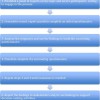Regardless of workspace or class setting, group work has gotten a reputation for being less than pleasant. However, when individuals have the opportunity to prepare for group work via understanding their personal strengths, expectations, and perspectives, the not-so-popular group work can often turn into pleasant, productive, and collaborative engagement. Because group dynamics shift and vary from group to group, there is a constant learning opportunity to understand how to work in groups successfully. This new 2-page publication of the UF/IFAS Department of Agricultural Education and Communication will identify simple yet effective strategies that can serve as foundational building blocks whenever preparing oneself or others for group work. Written by Cecilia E. Suarez and Jarred A. Shellhouse.
https://edis.ifas.ufl.edu/wc389
Tag: Facilitating and Managing Group Participation
Using the Delphi Technique to Achieve Consensus: A Tool for Guiding Extension Programs
 The ability to achieve a group consensus may be critical during specific activities throughout an Extension professional’s career. For example, it may be important to identify an advisory committee’s highest priorities or a group of stakeholders’ most important programmatic needs. The Delphi method has been recognized as a suitable alternative to interviews and formal meetings in certain circumstances. This 6-page fact sheet provides an overview of the Delphi method and suggestions for using this technique to support Extension programming. Written by Laura A. Warner, and published by the UF Department of Agricultural Education and Communication, October 2014.
The ability to achieve a group consensus may be critical during specific activities throughout an Extension professional’s career. For example, it may be important to identify an advisory committee’s highest priorities or a group of stakeholders’ most important programmatic needs. The Delphi method has been recognized as a suitable alternative to interviews and formal meetings in certain circumstances. This 6-page fact sheet provides an overview of the Delphi method and suggestions for using this technique to support Extension programming. Written by Laura A. Warner, and published by the UF Department of Agricultural Education and Communication, October 2014.
http://edis.ifas.ufl.edu/wc183
Working in Groups: Facilitating Positive Group Interactions
 Working together in groups can be a great experience or one filled with stress and anxiety. The goal of facilitating positive group interaction is for every group member to contribute in a more positive and productive manner. This article will review several methods that can facilitate positive group interactions, which will also enhance communication and overall group work. This 3-page fact sheet was written by Bryan D. Terry, and published by the UF Department of Family Youth and Community Sciences, October 2013.
Working together in groups can be a great experience or one filled with stress and anxiety. The goal of facilitating positive group interaction is for every group member to contribute in a more positive and productive manner. This article will review several methods that can facilitate positive group interactions, which will also enhance communication and overall group work. This 3-page fact sheet was written by Bryan D. Terry, and published by the UF Department of Family Youth and Community Sciences, October 2013.
http://edis.ifas.ufl.edu/fy1377
Working in Groups: The Importance of Communication in Developing Trust and Cooperation
 Working together in groups can be a great experience or one filled with stress and anxiety. The success of group work depends largely on the trust developed among group members and the respect they show each other. When an individual has had a positive experience in a group, he/she is more likely to take risks, ask questions, and share ideas that will benefit the total group. This 3-page fact sheet was written by Bryan D. Terry, and published by the UF Department of Family Youth and Community Sciences, August 2013.
Working together in groups can be a great experience or one filled with stress and anxiety. The success of group work depends largely on the trust developed among group members and the respect they show each other. When an individual has had a positive experience in a group, he/she is more likely to take risks, ask questions, and share ideas that will benefit the total group. This 3-page fact sheet was written by Bryan D. Terry, and published by the UF Department of Family Youth and Community Sciences, August 2013.
http://edis.ifas.ufl.edu/fy1378
